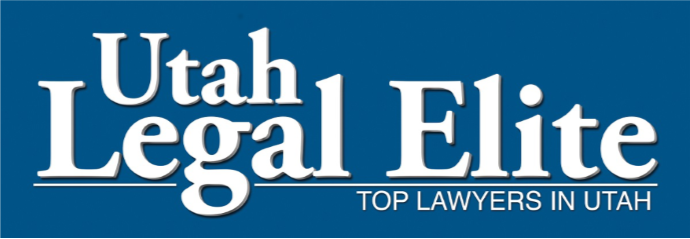Trusts and Estates
TRUSTS AND ESTATES
PRACTICE AREA / UTAH TRUSTS & ESTATES ATTORNEYS
Individuals who are concerned about a smooth transfer of assets across generations are encouraged to contact an estate planning and taxation attorney. RBMN specializes in planning for business owners and individuals with mid-sized to very large estates, using sophisticated planning techniques. Our estate lawyers are experienced in estate and gift tax planning, trust and will preparation, tax audit representation, probate procedure, estate disputes, and estate and trust administration.
UTAH TRUST AND ESTATES
Our full-service dedicated estate planning law practice employs a full array of comprehensive estate planning legal instruments on behalf of our clients, including:
- Wills
- Trusts
- Guardianship/Conservatorship
- Utah Health Care Directive (medical power of attorney/living will)
- Generation Skipping Trusts (GST)
- Special Needs Trusts
- Dynasty Trusts
- QTIP Trusts
- Charitable Remainder Trusts
- Living Trusts
- Grantor Trusts
- Life Insurance Trusts
- Planning Your Legacy
In all estate planning matters, our lawyers understand the importance of spending time listening to our clients to assess their goals and help them establish their legacy. We will take into account a wide variety of factors, including an inventory of all assets, business valuation, your needs while still living, and your specific intentions with regard to individual family members, including special circumstances such as:
- Step-children and sons- or daughters-in-law
- Children who have drug addictions or disabilities
- Children who have already received a large part of what will or would be their future inheritance
- Charity and gift planning
RECENT TRUSTS AND ESTATES LAW UPDATES
TRUSTS AND ESTATES ATTORNEYS AT RICHARDS BRANDT IN SALT LAKE CITY, UTAH
TRUST/PROBATE ADMINISTRATION
We advise individuals, personal representatives and corporate trustees on issues arising in the administration of trust and/or will. We also assist individual beneficiaries in helping them understand their rights as a beneficiary of a will and/or trust. Our trusts and probate administration practice helps personal representative, individuals, and bank/trust departs with;
- Appointment of personal representative
- Division and distribution of assets
- Valuation of assets
- Litigation of disputes
TRUST AND PROBATE LITIGATION
In an ideal world, trust and will planning would allow trustees and personal representatives (executors) to carry out the desires of the decedent (including transfers of cash, real estate and investments, as well as business succession plans,) however that is not always possible. Many people include charitable intentions when they draft wills and trusts and pass on specific assets to spouses, children, and other friends and family members. The reality is disputes often arise when trustees, personal representatives, beneficiaries, and heirs are at odds over the disposition of an estate. It is not uncommon for this type of situation to develop when the second parent dies, and disagreements between children arise over the money and property left behind. One party may allege that another had undue influence over the decedent or claim that a trustee or personal representative is abusing power or favoring another beneficiary. We have experience in these matters and can assist you in navigating these sensitive situations.
GUARDIANSHIPS/CONSERVATORSHIPS
Here at Richards Brandt, we work with our clients on several types of guardianship matters. Our attorneys advise clients on understanding the guardianship/conservatorship process. Our process includes establishing guardianship and conservatorships for relatives and loved ones in need of supervised health and financial care. By combining a skilled team of lawyers our attorneys evaluate the best legal approach to each guardianship and conservatorship matter. We advise clients on defending or pursing guardianship matters with sensitivity and professionalism.
ASSET PROTECTION
The practice of asset protection involves preserving your individual wealth or the assets of your business by minimizing the risk that various creditors can find and take your hard earned assets. We work with our clients to create different types of wealth preservation strategies based upon their needs, protecting them, their families, and their businesses from financial crisis, catastrophic judgments and future creditors. Without creating the right strategy and safeguards, years of your hard work and success can be at risk. Our lawyers are committed to protecting our clients, whether business or individuals, from potential financial crisis.
RECEIVERSHIP
Whether a government regulator appoints a receiver, a privately appointed receiver is selected, or a court-appointed receiver is designated; they will have custodial responsibility for any property including tangible and intangible assets and rights. If you are appointed as the receiver, you may need legal counsel to help you navigate relevant laws and prepare documents. If someone else is appointed receiver, especially where your assets are in question, you should meet with an attorney to understand your rights and possible claims. Finally, if you require the services of an experienced receiver, contact us to arrange a receivership that meets your needs. We have successfully navigated receivership situations for decades.
TAX CONSIDERATIONS
Special tax considerations may apply for larger estates. Working with an experienced attorney is important for individuals and couples to understand how to work within the law to ensure the greatest possible percentage of the estate will be preserved for the family, for an ongoing business, or for designated charities.
A FULL RANGE OF TAX MATTERS
Richards Brandt’s taxation lawyers handle tax planning for new business start-ups and non-profit organizations including charitable and religious organizations. We represent clients in tax controversies involving liens and levies from the IRS, including appeals, collections, offers in compromise, audit reconsideration appeals, as well as bankruptcy strategies connected with tax controversies.
We assist in all areas of taxation and tax planning, including sales tax issues, property tax issues, tax planning for same-sex couples, and tax considerations after divorce, adoption, marriage or the birth of children. Our attorneys can advise you about a wide range of other business and personal tax and ownership options such as joint tenancy.
CONTACT US TO DISCUSS YOUR NEEDS OVER THE PHONE OR TO SCHEDULE A CONSULTATION
Salt Lake City area business owners and private individuals are encouraged to call or e-mail Richards Brandt to arrange for a consultation with one of our lawyers. We represent clients in estate planning and taxation matters throughout the State of Utah.
“Good fortune is what happens when opportunity meets with planning.”
-Thomas Alva Edison-
FREQUENTLY ASKED QUESTIONS (FAQS)
BUSINESS TRANSACTIONS & CORPORATE GOVERNANCE / FEATURED FAQS
Q: Is an LLC or Corporation right for my business?
Answered by:
A: To decide which entity is right for you, we look at: liability, taxation, and maintenance. Both corporations and LLC’s have limited personal liability—this means that owners are usually not responsible for business debts. However, corporations and LLC’s are taxed very differently—corporations are classified as a separate taxable entity, whereas LLC’s are typically taxed as a pass-through entity (unless you choose otherwise). And corporations and LLC’s have different levels of maintenance—LLC’s have fewer reporting requirements and can operate solely with members acting as the managers. Conversely, corporations are required to hold certain annual meetings, keep certain records, and appoint boards and officers to manage the company for the stockholders. Every situation is unique so we recommend that you consult with an attorney in making your decision. Contact our firm, Richards Brandt, if we can help you decide which entity is right for you.
Q: Is an LLC or Corporation right for my business?
Answered by:
A: To decide which entity is right for you, we look at: liability, taxation, and maintenance. Both corporations and LLC’s have limited personal liability—this means that owners are usually not responsible for business debts. However, corporations and LLC’s are taxed very differently—corporations are classified as a separate taxable entity, whereas LLC’s are typically taxed as a pass-through entity (unless you choose otherwise). And corporations and LLC’s have different levels of maintenance—LLC’s have fewer reporting requirements and can operate solely with members acting as the managers. Conversely, corporations are required to hold certain annual meetings, keep certain records, and appoint boards and officers to manage the company for the stockholders. Every situation is unique so we recommend that you consult with an attorney in making your decision. Contact our firm, Richards Brandt, if we can help you decide which entity is right for you.
Q: Is an LLC or Corporation right for my business?
Answered by:
A: To decide which entity is right for you, we look at: liability, taxation, and maintenance. Both corporations and LLC’s have limited personal liability—this means that owners are usually not responsible for business debts. However, corporations and LLC’s are taxed very differently—corporations are classified as a separate taxable entity, whereas LLC’s are typically taxed as a pass-through entity (unless you choose otherwise). And corporations and LLC’s have different levels of maintenance—LLC’s have fewer reporting requirements and can operate solely with members acting as the managers. Conversely, corporations are required to hold certain annual meetings, keep certain records, and appoint boards and officers to manage the company for the stockholders. Every situation is unique so we recommend that you consult with an attorney in making your decision. Contact our firm, Richards Brandt, if we can help you decide which entity is right for you.
BUSINESS TRANSACTIONS & CORPORATE GOVERNANCE – CASE STUDIES
Utah Manufacturing Company Needed Employment Contracts For Key Staffers
Utah Construction Company Needed Planning For Business Growth & Protection
Utah Family Enterprise Needed Guidance and Representation to Sell Business
REVIEWS
Avoiding Common Pitfalls of Estate Planning
September 2014
Estate planning is a process—not an event—often wrought with common and routine mistakes, the most common of which include the following:
- no planning at all;
- failure to coordinate insurance/retirement assets with an estate plan;
- adding individuals to bank accounts;
- transferring family home in joint tenancy with an adult child; and
- no planning for a disabled/special needs child.
A properly drafted estate plan can help avoid these mistakes.
THE PROBLEM WITH DOING NOTHING
When a person dies without a will, the person is said to have died intestate. The laws of the state where the person lived at the time of death will apply, and those laws determine the liquidation and distribution of the estate. Many people do not have a favorable opinion of, or trust, politicians. Yet, when you do nothing, you are letting your state legislature draft your estate plan. Under intestacy laws your property could ultimately end up in the hands of unwanted beneficiaries or administrators. Would you want an ex-spouse to be responsible for receiving or administering your property? Creating a trust can solve this problem.
FAILURE TO COORDINATE INSURANCE/RETIREMENT ASSETS WITH AN ESTATE PLAN
A common misconception is that a will controls the distribution of assets upon death. However, a will only governs probate assets (i.e., assets not controlled by trusts, joint tenancy, and/or beneficiary designations.) Today, many assets get transferred without consideration of a will. For example, joint tenancy assets pass to the surviving joint tenant and life insurance, annuities, and IRAs/401(k)s are controlled by beneficiary designations. These assets, upon death of the owner, pass to the named beneficiary regardless of the provisions outlined in a will. So, if an individual designates only one child as a beneficiary in a life insurance policy, but prepares a will naming all children as equal beneficiaries, the beneficiary designation in the insurance policy trumps the directions in the will, potentially creating problems the deceased never intended, and which could have been avoided by coordinating insurance/retirement assets with an estate plan.
ADDING INDIVIDUALS TO BANK ACCOUNTS
Adding a person to a bank account subjects the account to that person’s creditors. For example, when a parent adds a child to his/her checking account in order to allow the child to manage the bills and expenses, the child becomes a co-owner of the account, and that account becomes subject to the child’s creditors. Creating a revocable trust can protect assets while still allowing another person to pay your bills.
TRANSFERRING THE FAMILY HOME IN JOINT TENANCY WITH AN ADULT CHILD
A parent conveying title of their home to an adult child as joint tenants to avoid probate court is a routine mistake for several reasons. (1) This transfer constitutes a taxable gift under IRS regulations. (2) The home becomes subject to the child’s creditors who can then potentially force the sale of the home. (3) The sale of the home results in potential capital gains tax to the child. A revocable trust can accomplish transfer of real property without the ensuing problems.
FAILURE TO PLAN FOR A DISABLED CHILD
If you have a disabled or special needs child, you should consider leaving the child’s inheritance in a specially drafted trust to protect the child while keeping the child eligible for public assistance. An inheritance could cause forfeiture of public assistance benefits to a special needs child. Through a supplemental needs trust a child’s inheritance can be managed by a selected family member without sacrificing Medicaid or SSI benefits.
CONCLUSION
Proper planning creates peace of mind, streamlines administration, and preserves your property for your family and future generations. With attention and regular checkups we are able to catch the mistakes described above (and more) and make the necessary changes to avoid unnecessary problems and costs.
Inherited IRA’s Are Not Protected in Bankruptcy
June 2014
On June 12, 2014, the United States Supreme Court ruled that an IRA inherited by an individual (other than a spouse) is subject to a debtor’s creditors in a bankruptcy proceeding. Clark v. Rameker, 573 U.S. 7th Circuit (2014). In order to allow a debtor a fresh start, the bankruptcy code allows the debtor to exempt, protect or retain certain assets from his creditors while obtaining a discharge of his debts.
A traditional IRA, a Roth IRA and a 401(k) are exempt assets under the bankruptcy code. Prior to this Court’s ruling there remained a question if an inherited IRA is afforded the same protection as other retirement funds. Justice Sonia Sotomayor, writing for the Supreme Court, stated that “[n]othing about the inherited IRA’s legal characteristics would prevent (or even discourage) the individual from using the entire balance of the account on a vacation home or sports car immediately after her bankruptcy proceedings are complete”. Therefore, the Court held that an inherited IRA is not exempt or protected, and is subject to the beneficiaries’ creditors.
Designating a child as the beneficiary of retirement funds may not be the right choice if you are looking to provide creditor protection for your children’s inheritance. Setting up a proper third party trust can afford asset protection for your children not available if you leave the funds outright to them. Please call if you have any questions regarding the Supreme Court’s recent decision or to discuss options in setting up a trust with asset protection features.
Greg Steed is an Attorney at RBMN and the Practice Chair for the Trusts and Estates Practice Group.










Avoiding Common Pitfalls of Estate Planning
Inherited IRA’s Are Not Protected in Bankruptcy